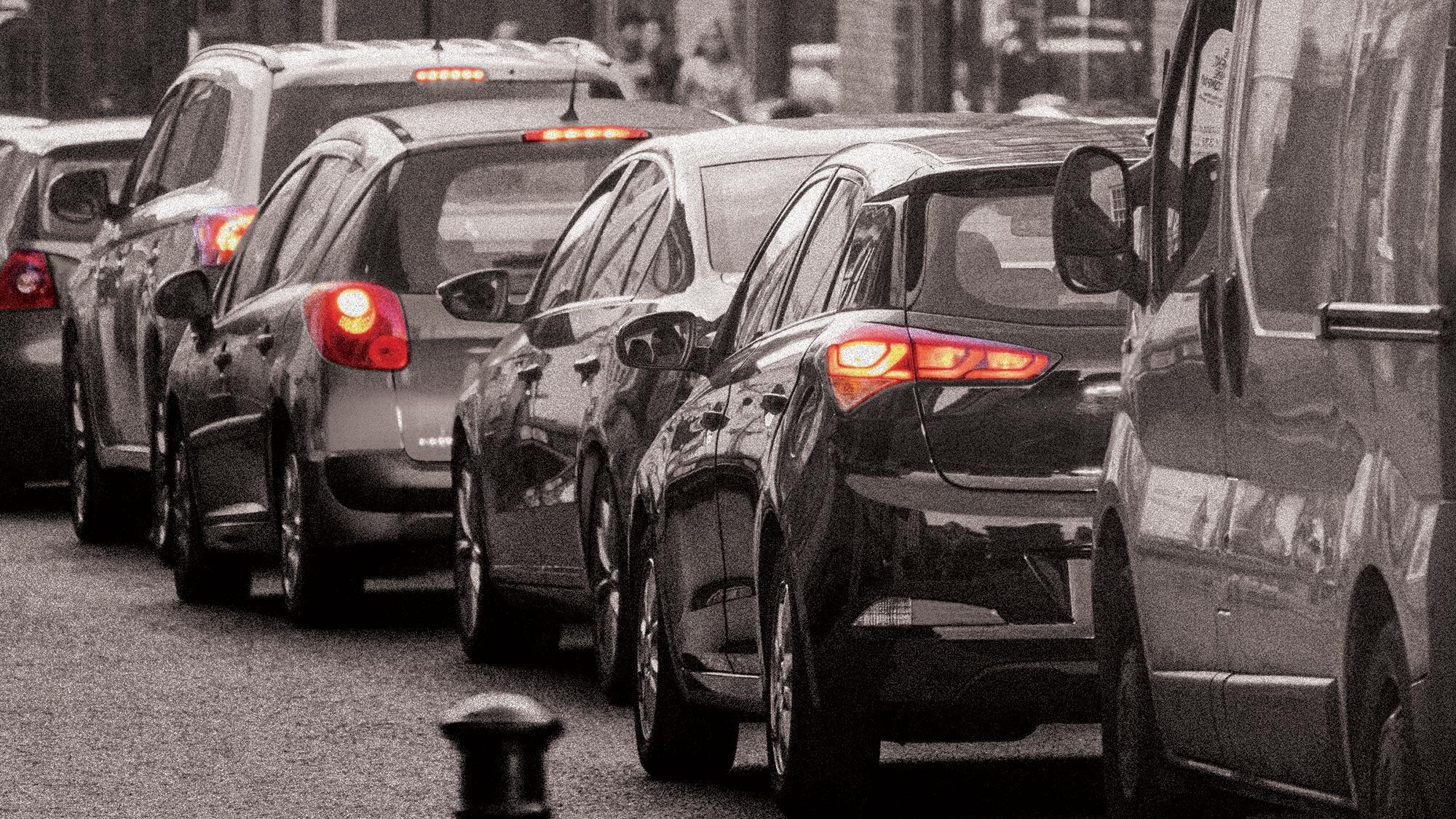Portlanders profess grave concern about climate change. But when it comes to driving, such concern hasn't translated into declining car emissions—or significant will to change their commute.
A new poll suggests area voters may not be interested in radical change.
The poll comes at a time when the regional government Metro is preparing to place a transportation measure on the 2020 ballot. It has to decide how much of the money should be spent on freeway bottlenecks, and how much should be spent on light rail and bike lanes.
Some advocates have urged that none of the money be spent on cars or highways. It turns out that's a wildly unpopular position.
FM3 Research asked 700 voters between Sept. 30 and Oct. 6 about their priorities.
(Metro expects to pay $37,000 for the survey.)
Most voters the Portland polling firm surveyed said they wanted a combination of infrastructure improvements—and flatly rejected the idea that local government should stop widening roads.
Widening streets may temporarily decrease congestion, though research shows such projects are likely in the long term to create more traffic, not less.
Portland's transportation emissions are up 8 percent over 1990 levels, according to numbers released this year, while the state's were up nearly 20 percent, according to data released last year.
"The poll shows voters want to see action on transportation," says Metro government affairs director Andy Shaw. "They also want to see action on climate."
Climate advocates says local governments will have to choose between their emissions goals and highways. "To achieve those regional goals, it's impossible to continue widening highways and expanding road capacity for single-occupancy vehicles," says Aaron Brown, an advocate with No More Freeways PDX.
Here are the two statements voters were asked to choose from, and which they picked.
15 percent chose:
"Fighting climate change should be our highest priority and that means focusing only on investments in transit, biking, and walking. We shouldn't support any transportation investments that include road-widening or freeway improvements."
72 percent chose:
"We need to work to address worsening traffic and reduce climate pollution. This means balancing investments between bus, light rail, and roadway improvements that keep cars from idling in gridlock."
(The remaining respondents said they didn't know or chose both or neither.)
Other noteworthy findings by the same poll:
• Homelessness is the top concern in the region, with 92 percent of surveyed voters saying it was an extremely or very important issue. (That's significant because a homelessness services measure may also be placed on the ballot in 2020.)
• Traffic was the second-most important issue to voters polled, with 71 percent viewing it as an extremely or very important issue.
• Just 30 percent say the region is headed in the right direction, a low number that has fallen 16 points in three years. That's a number that should strike fear into the hearts of political incumbents.
